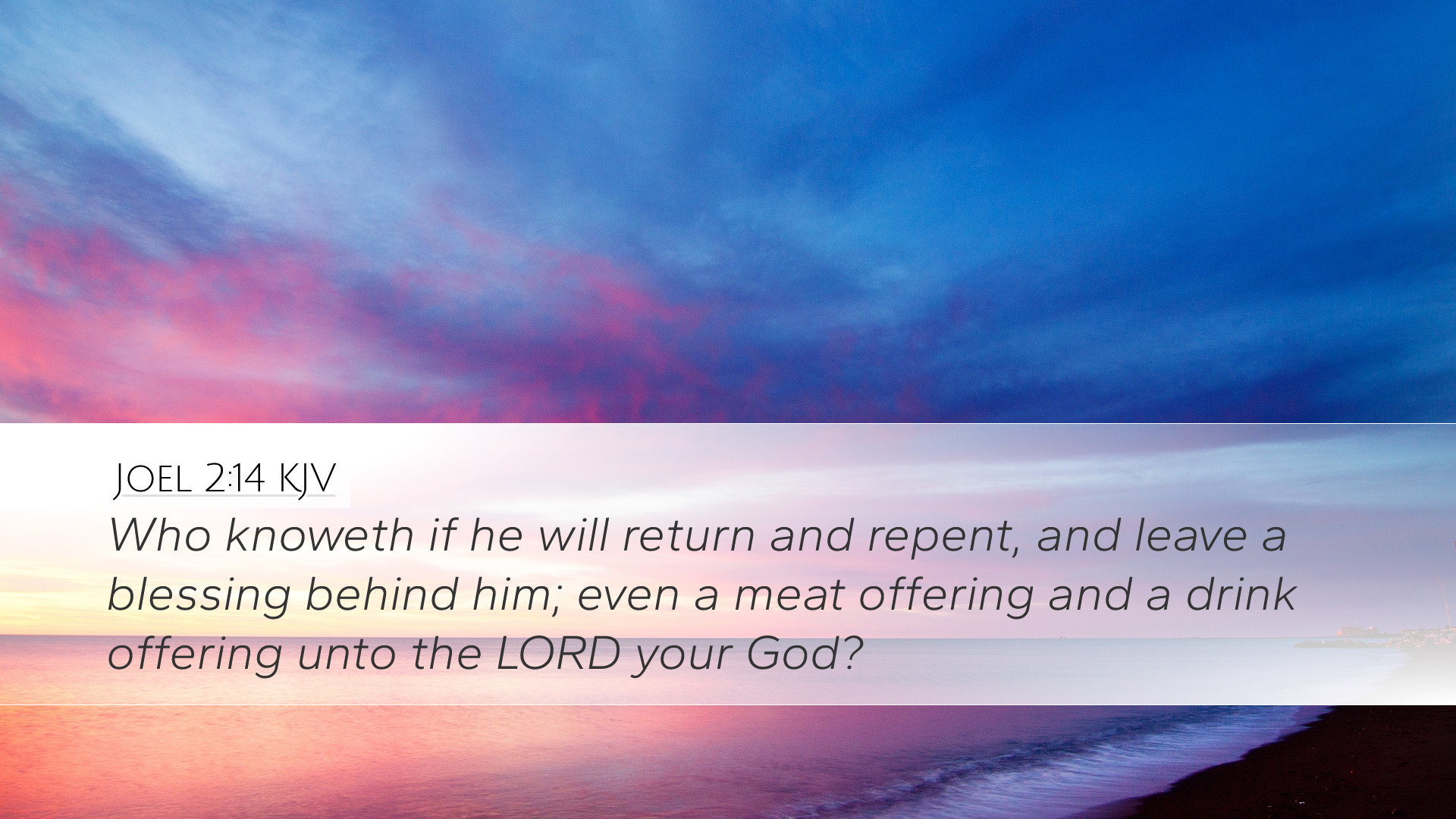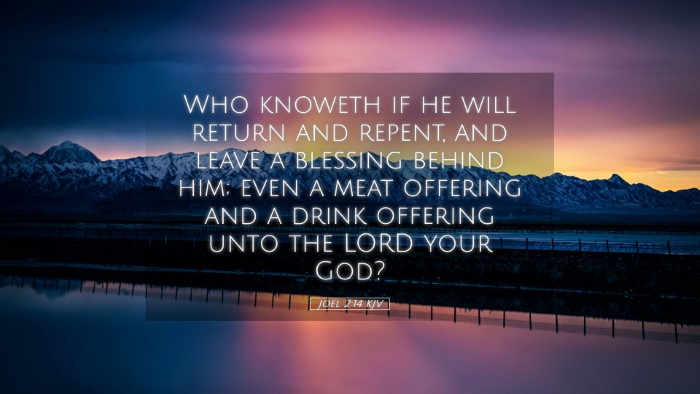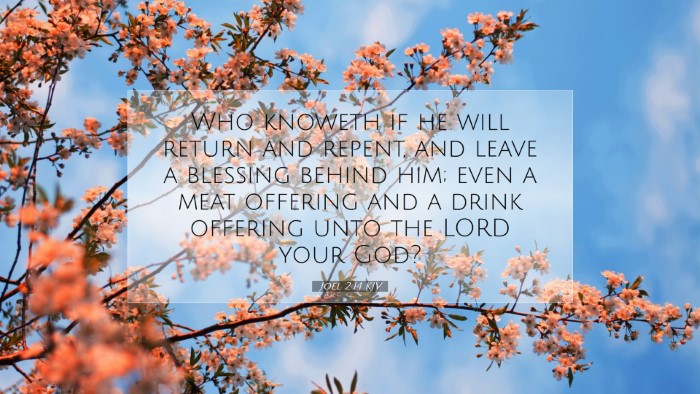Commentary on Joel 2:14
Verse Background: Joel 2:14 states, "Who knows? He may turn and relent and leave behind a blessing—grain offerings and drink offerings for the Lord your God." This verse appears in the context of a call to repentance following a period of calamity and locust plague that has afflicted Judah.
Overview of Joel's Message
Joel prophesies during a time of crisis, urging the people of Israel to recognize their plight and turn back to God. His message is not merely one of judgment but of hope and restoration, indicating God's willingness to forgive and bless.
Insights from Public Domain Commentaries
Matthew Henry's Commentary
Matthew Henry emphasizes the mercy of God in this verse. He notes that the call to repentance and the uncertainty of God's response ("Who knows?") illustrates the deep hope that remains even in the face of imminent judgment. He states:
- God’s Mercy: His readiness to relent should invoke genuine repentance among the people.
- Human Response: The uncertainty of the outcome urges the Israelite community to return to God with sincerity, reflecting a dual dynamic of justice and grace.
- Restoration and Blessing: Henry further highlights the promise of restoration, emphasizing the tangible blessings that God may provide as offerings, a sign of His favor.
Albert Barnes' Notes on the Bible
Albert Barnes captures the essence of divine intervention where he discusses the conditional nature of God's forgiveness based on repentance:
- Conditional Redemption: Barnes echoes the sentiment that while God's compassion is vast, it often hinges upon the repentance of His people. "He may turn and relent" demonstrates that calling upon God is not in vain.
- Divine Profusion: He underscores that genuine repentance could lead to blessings that were lost due to prior sins. This reflects the character of God who delights in restoring those who return to Him.
- Prayer and Offerings: Barnes notes the significance of offerings mentioned in the text, highlighting that these tangible expressions of faith serve to align believers' hearts with God's righteousness.
Adam Clarke's Commentary
Adam Clarke delves into the theological implications of the verse, drawing attention to the nature of God's willingness to forgive:
- God's Character: Clarke explicates that the phrase "Who knows?" encapsulates the hope that permeates the human condition. It is an acknowledgment of God’s sovereignty—His decisions are never arbitrary.
- Significance of Repentance: He reinforces the idea that true repentance can indeed avert disaster and provoke God's compassion. Clarke elucidates the historical context of the locust plague as a divine consequence of sin.
- Community Application: He encourages readers to consider how this principle of repentance and blessing applies to local congregations and communities today, highlighting corporate sinfulness and the need for corporate repentance.
Theological Themes
The primary themes within Joel 2:14 include:
- Repentance: A heartfelt return to God is essential for restoration. This is relevant for personal and communal spirituality in our contemporary church context.
- God's Relenting Nature: This illustrates God's ultimate sovereignty coupled with His mercy. It invites believers to trust in God’s providence while recognizing human agency in repentance.
- Divine Blessing: God not only desires to forgive but also to bless abundantly—spiritually, materially, and communally.
Application for Pastors and Scholars
In sharing the insights gleaned from these various commentators, pastors and scholars can use Joel 2:14 in the following ways:
- Ecclesiastical Reflections: Encourage congregations to introspect and engage in communal prayer and fasting, mimicking the context of desperate longing for God’s intervention.
- Teaching on God's Merciful Nature: Highlight the balance of God’s justice and mercy in sermons, assuring people that God's anger is tempered by His love, fostering a healthy view of repentance.
- Promoting Hope: Reinforce the message that, regardless of the circumstances, God is reachable and willing to restore those who humbly seek Him.
Conclusion
Joel 2:14 serves as a powerful reminder of God's nature—both just and merciful. The insights from Matthew Henry, Albert Barnes, and Adam Clarke illuminate this verse as a cornerstone for understanding repentance and divine blessing. Whether for personal reflection or communal teaching, this Scripture invites all to embrace the hope of restoration through sincere turning back to God.


